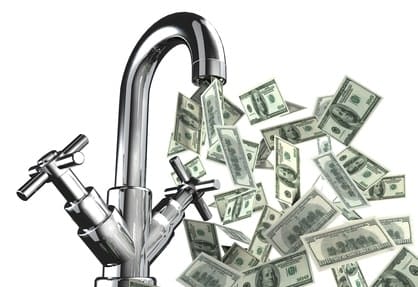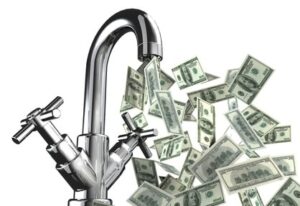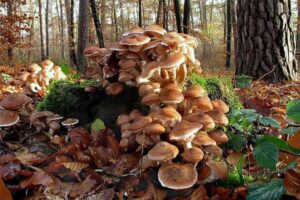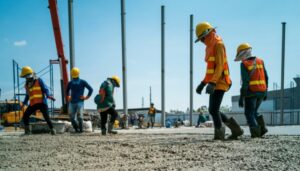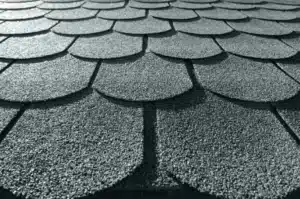The Economics of Plumbing How to Save Money on Water Bills
Water is a precious resource, and as the world faces increasing environmental challenges, it becomes imperative for individuals to contribute to conservation efforts. One area where significant strides can be made is in plumbing. The impact of plumbing on water bills is undeniable, but with the right approach, one can not only conserve water but also save money in the process. The Economics of Plumbing
Introduction
Water scarcity is a global concern, and the economics of plumbing play a crucial role in addressing this issue. In this article, we’ll explore practical ways to save money on water bills through efficient plumbing practices.
Understanding Water Usage
To begin our journey into water conservation, it’s essential to understand our water usage habits. Analyze your household’s consumption patterns and identify any practices that may be contributing to unnecessary water wastage.
Efficient Fixtures and Appliances
Upgrading to low-flow faucets and showerheads is a simple yet effective way to reduce water consumption. Additionally, choosing water-efficient appliances for your kitchen and laundry can make a significant impact on your water bills.
Regular Maintenance
One of the most common reasons for high water bills is undetected leaks. Regularly check for leaks in your plumbing system and promptly fix any issues. Dripping faucets may seem minor, but they can add up to significant water waste over time.
Smart Irrigation Practices
If you have a garden or lawn, implementing efficient watering schedules can make a substantial difference. Invest in smart irrigation systems that adjust based on weather conditions to avoid unnecessary watering.
Rainwater Harvesting
Consider utilizing rain barrels to collect rainwater for non-potable water needs. Implementing rain gardens can also help reduce runoff and contribute to overall water conservation efforts.
Greywater Systems
Understanding and implementing greywater reuse is another advanced strategy. Ensure you are aware of legal considerations and take necessary safety measures when incorporating greywater systems into your home.
Behavioral Changes for Water Conservation
Simple changes in behavior can have a significant impact. Encourage shorter showers, turn off taps while brushing teeth, and educate household members on the importance of water-saving habits.
Water-Efficient Landscaping
Choosing drought-resistant plants for your garden and using mulch to retain soil moisture are effective ways to conserve water outdoors.
Financial Incentives for Water Conservation
Explore government rebates and incentives for water-efficient practices. While there may be an initial investment, the long-term savings on water bills make it a financially sound decision.
DIY Plumbing Tips for Water Conservation
Homeowners can take simple steps to conserve water, from fixing leaks to ensuring proper installation of plumbing fixtures. These DIY measures can contribute to both water conservation and cost savings.
Community Initiatives for Water Conservation
Look into local programs promoting water efficiency. Participating in community initiatives can amplify the impact of individual efforts, leading to a more sustainable water future.
Case Studies of Successful Water Conservation
Learn from the experiences of communities or businesses that have successfully implemented water-saving strategies. Their examples can provide valuable insights and inspiration for your own conservation efforts.
Future Trends in Water-Conserving Plumbing
Stay informed about innovations in plumbing technology. Anticipated developments may offer new opportunities for increased efficiency, further contributing to water conservation efforts.
Conclusion
In conclusion, the economics of plumbing offer numerous avenues for saving money on water bills while contributing to global water conservation. By understanding water usage, adopting efficient fixtures, practicing regular maintenance, and embracing innovative solutions, individuals can make a meaningful impact on both their wallets and the environment.
FAQs
- Are low-flow fixtures really effective in reducing water consumption?
- Low-flow fixtures can significantly reduce water consumption without compromising functionality.
- How can I detect and fix leaks in my plumbing system?
- Regularly check for signs of leaks, such as water stains or unusual sounds. Consult a plumber if you suspect a leak.
- What financial incentives are available for water conservation?
- Government rebates and incentives vary by location. Check with local authorities for specific programs.
- Can rainwater harvesting be implemented in urban areas?
- Yes, urban areas can implement rainwater harvesting through the use of rain barrels and other systems.
- Are there any upcoming technologies for water-conserving plumbing?
- Stay updated on advancements in plumbing technology for the latest innovations in water conservation.

